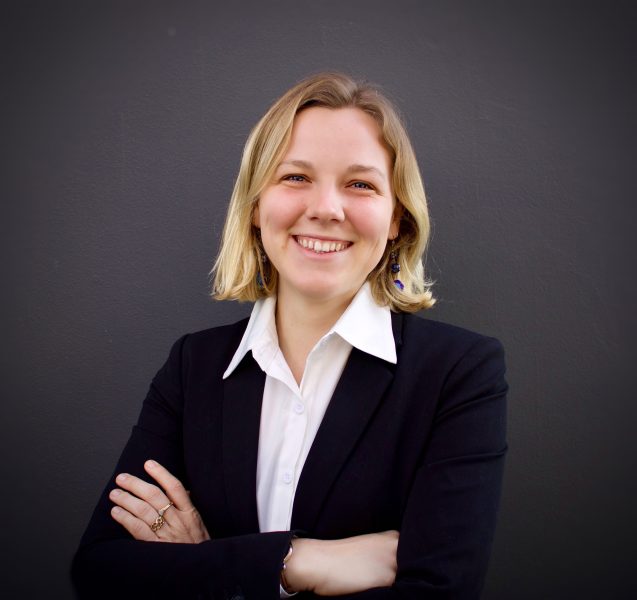
Genevieve Flaspohler, chief data officer at nLine Inc., will present her talk, “From the Ocean to the Electric Grid: Mobilizing Algorithms, Robots, and Sensors for Society,” at an on-campus Department of Computer Science Colloquium lecture on Friday, April 7, 2023, from 3-4 p.m. in Rekhi Hall Room 214
Flaspohler is an independent auditor for the world’s electric grids, measuring and improving investments in grid infrastructure, solar mini-grids, and electricity access across seven countries in sub-Saharan Africa.
Title: From the Ocean to the Electric Grid: Mobilizing Algorithms, Robots, and Sensors for Society
Talk Abstract: How can data support efforts to address critical societal challenges, such as those outlined in the UN’s sustainable development goals? The challenges of climate change, ocean acidification, energy poverty, and equality are complex and linked, and require international coalitions taking substantial and thoughtful action to address. However, sometimes, science can provide a pivotal insight that enables and supports these actions. In this talk, I ask the question: how do we collect data that reveal fundamental properties of complex phenomena and enable targeted action? I will provide two specific answers: one enabling deep sea robots to intelligently explore hydrothermal vents and understand methane cycling, and one enabling low-cost sensors to provide state-of-the-art insights into the large and complex web of wires, transformers, and switches we call the electrical distribution network. I employ the methods of probabilistic inference, decision-making under uncertainty, and machine learning to collect data that elucidate the behavior of these complex systems and arm decision-makers — human and robotic — to take more informed action.
Speaker Biography: Genevieve Flaspohler mobilizes data to support critical societal challenges. In her current role as the Chief Data Officer at nLine Inc., she serves as an independent auditor for the world’s electric grids, measuring and improving investments in grid infrastructure, solar mini-grids, and electricity access across seven countries in sub-Saharan Africa.
Flaspohler received her Ph.D. in Electrical Engineering and Computer Science from MIT, with a joint degree in Applied Ocean Engineering from the Woods Hole Oceanographic Institute, focusing on uncertainty quantification and adaptive sensing. Throughout her Ph.D., she worked on environmental problems, developing algorithms for localizing coral colonies, forecasting subseasonal weather patterns, and monitoring hydrothermal plumes. Flaspohler has deep roots in her home state of Michigan: she received a BSE in Computer Engineering from the University of Michigan and grew up in the beautiful Keweenaw Peninsula. Visit Flaspohler’s website here.